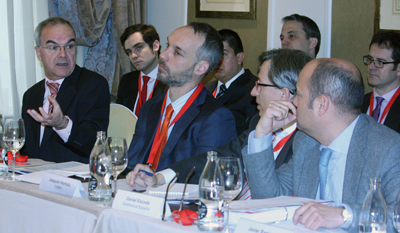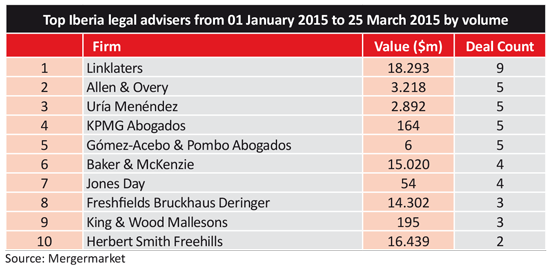New competition damages directive will help victims of cartels
EU antitrust damages directive aims to frame the national procedural rules applicable to actions for damages relating to breaches of competition law
A new EU directive aimed at increasing the likelihood of damages being awarded in cases related to breaches of competition law will give plaintiffs a range of useful instruments – including access to key evidence – attendees at an Iberian Lawyer Global Compliance Club event heard.
The intention of the directive, which was published on 5 December last year, is to facilitate the awarding of damages to victims in competition law cases, given the estimated shortfall in the compensation recovered by victims. Along with the €1.88 billion-worth of fines that were successfully imposed by the European Commission in 2012, an estimated €23 billion are not being recovered by victims due to procedural barriers.
The successful implementation of the directive will depend on how current laws are amended to ease appropriate access to evidence. “The current system is not working as plaintiffs and defendants do not have the same amount of information, so it is confusing and unbalanced”, according to Fernando Cuñado at KPMG Forensic. Meanwhile, Helmut Brokelmann of Martinez Lage, Allendesalazar & Brokelmann added that in order to quantify claims, “disclosure at an early stage would assist on a claims related to a cartel case”.
Attendees at the Madrid event were told the new directive must be incorporated into the laws of member states within two years. The amendment to the civil laws could also have implications for other types of litigation in the civil procedural code, but it is not likely to be approved soon due to the time needed to go through a process of external consultation, a source at the Ministry of Justice said.
Challenges for companies
Participants were also told that the biggest obstacle to the directive’s success will be involving all of the affected parties and institutions. Companies, especially, will face particular challenges relating to their attempts to procure compensation for damages incurred, or due to their need to minimise lawsuits against them via an adequate defence strategy. One attendee asked: “It is unclear what is going to happen with regard to the leniency programmes? Are whistle blowers protected?”
Lawyers attending the event said that while the legislation is good, there is room for improvement, and although it grants greater flexibility, incentives for its application will differ from country to country.
The majority of major breaches of competition law are international and litigation can take place in many jurisdictions. “The directive creates competition between jurisdictions, allowing companies to choose the one in which they pursue their case”, said KPMG Forensic´s Carlos Pascual Pons. The UK, for example, attracts many cases due to the number of specialised judges, while Spain might see simpler, faster and less costly processes in such cases.












